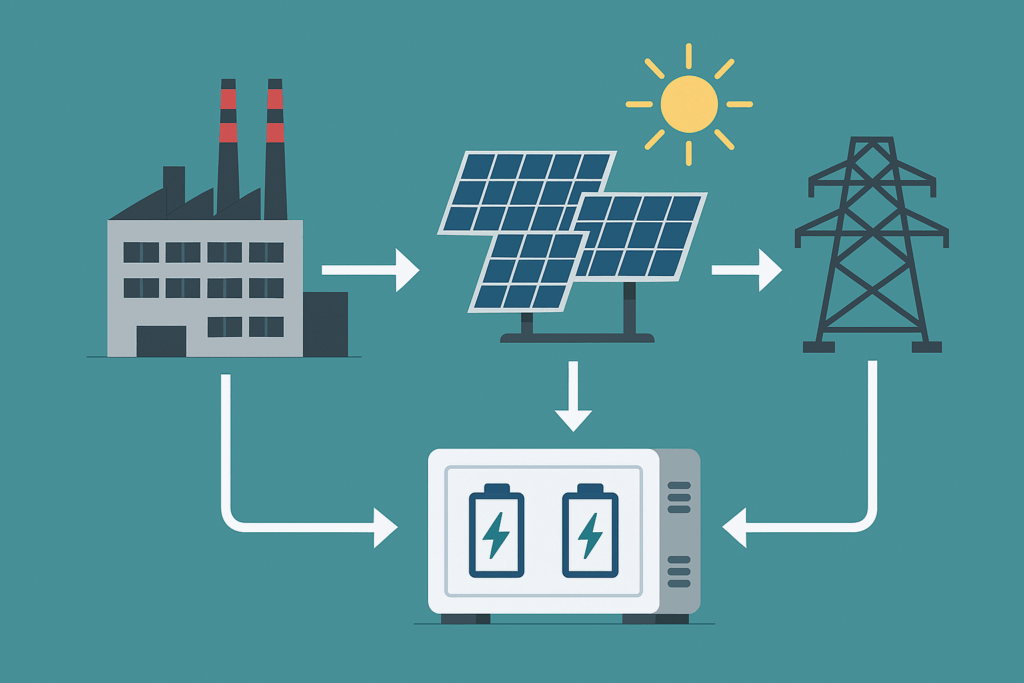Industrial microgrids: real-world cases and why they are key to energy resilience

The transition towards a more sustainable and efficient energy model is transforming the way industries manage their electricity consumption. In this context, industrial microgrids have become a key solution to ensure energy resilience, optimise costs, and reduce dependence on the traditional power grid.
At IONLY Batteries, we develop energy storage and management solutions that enable the integration of reliable, intelligent, and sustainable microgrids in demanding industrial environments.
What is an industrial microgrid?
An industrial microgrid is a local energy system composed of generation (for example, solar panels), storage (industrial BESS batteries), and digital management systems, which can operate either connected to the main grid or independently in “island mode.”
These solutions provide industries with greater autonomy, reliability, and energy efficiency, while at the same time reducing costs and emissions.
2. Real-world cases of industrial microgrids
- Automotive sector: car manufacturing plants in Europe and Asia already use microgrids to ensure production continuity, even during main grid outages.
- Logistics centres: distribution companies implement microgrids with battery storage to ensure 24/7 operations without interruptions.
- Chemical and pharmaceutical industry: critical facilities with high energy demand rely on hybrid microgrids (renewables + storage + backup generators) to comply with environmental regulations and ensure stable processes.
- Data centres: combine solar energy + IONLY batteries with backup generators to maximise security and reduce the carbon footprint.
3. Why are they key to energy resilience?
- Operational continuity: they allow operations to continue in the event of power cuts or grid instability.
- Energy flexibility: they adapt to different renewable sources (solar, wind, biomass).
- Economic efficiency: they reduce energy costs by optimising the use of renewables and battery storage.
- Sustainability: they minimise emissions and support the transition towards industrial decarbonisation.
- Immediate response: industrial BESS systems guarantee power supply within milliseconds, something that diesel generators cannot achieve.
4. The role of batteries in microgrids
Industrial batteries are at the core of modern microgrids. Thanks to technologies such as those developed by IONLY Batteries, it is possible to:
- Store surplus renewable generation and release it when demand requires.
- Reduce dependence on fossil fuels.
Implement repairable and sustainable systems, extending their lifespan and fostering the circular economy.+
5. Advantages of Implementing Microgrids with IONLY
- Scalable solutions: tailored to the energy needs of each industry.
- High reliability: systems designed for critical environments.
- Genuine sustainability: repairable batteries with a long service life.
- Technological innovation: integration with intelligent energy management software.
Conclusion
Industrial microgrids are not just a trend; they are a fundamental element in the energy strategy of any modern industry. They ensure energy resilience, optimise costs, and support the transition towards a more sustainable model.
With IONLY Batteries solutions, companies can design and implement efficient, repairable, and sustainable microgrids, aligned with energy transition goals and industrial competitiveness.